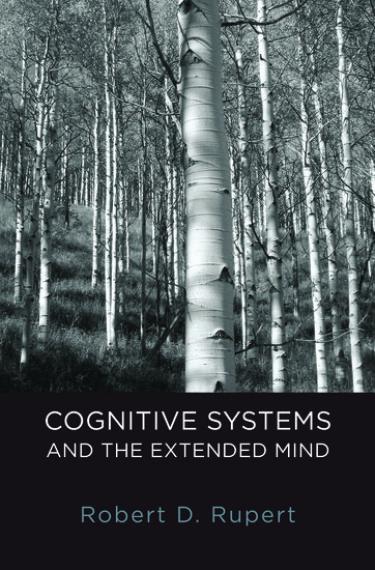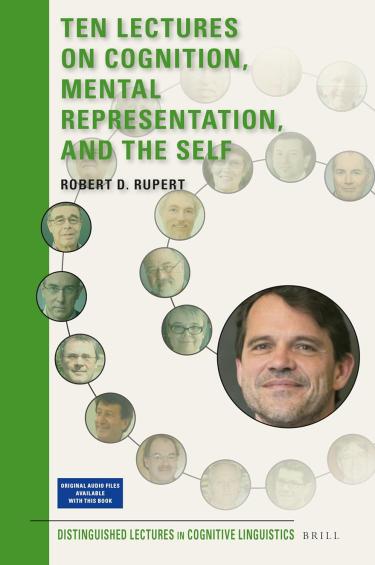Robert D. Rupert
- Professor
- Chair

HLMS N127
Office hours: 9:30-10:30 and by appointment via Zoom
overview
Robert Rupert (Ph.D., U. of Illinois at Chicago, 1996) works in the philosophy of mind, the philosophical foundations of cognitive science, and in related areas of philosophy of science, metaphysics, epistemology, and philosophy of language. His research focuses particularly on mental representation, concept acquisition, mental causation, cognitive architecture, situated cognition, group cognition, natural laws, and properties. Rob has been awarded a National Endowment for the Humanities Fellowship for College Teachers as well as an NEH summer research stipend. He has won a CU Provost's Faculty Achievement Award and a Kayden Book award, is a fellow of the Institute of Cognitive Science at CU-Boulder, and is a member of CU-Boulder's Committee for the History and Philosophy of Science. He has held visiting research positions at the University of Edinburgh, the Australian National University, and the Ruhr-Universität, Bochum. He is Co-Editor-in-Chief of the British Journal for the Philosophy of Science.
For more information, see Professor Rupert's CV.
selected papers
- “Self-knowledge in a Human Mind Flattened from Above,” forthcoming in a volume edited by C. Wright, G. Melis, and G. Merlo, Oxford University Press
- “Cognitive Systems, Predictive Processing, and the Self,” themed issue of Review of Philosophy and Psychology 13 (2022): 947–972
- “Epistemic Value in the Subpersonal Vale,” co-authored with J. Adam Carter, Synthese 198: 9243–9272, (2021)
- “The Self in the Age of Cognitive Science: Decoupling the Self from the Personal Level,” Philosophic Exchange 47 (2018), 1–36: https://digitalcommons.brockport.edu/phil_ex/vol47/iss1/2
- “Representation and Mental Representation,” Philosophical Explorations 21, 2 (2018), 204–225, special issue on enactivism, representationalism, and predictive processing
- “Acting Up: What Difference Does an Action-Oriented Approach Make to the Study of Cognitive Development?” co-authored with Giovanni Pezzulo, Gottfried Vosgerau, Uta Frith, Antonia Hamilton, Cecilia Heyes, Atsushi Iriki, Henrik Jörntell, Peter König, Saskia Nagel, Pierre-Yves Oudeyer, and Antonella Tramacere. In A. Engel, K. Friston, and D. Kragic (eds.) The Pragmatic Turn: Toward Action-Oriented Views in Cognitive Science (Cambridge, MA: MIT Press, 2016), pp. 53–81
- “Embodied Concepts, Conceptual Change, and A Priori Knowledge; or, Justification and the Ways Life Can Go”, American Philosophical Quarterly 53, 2 (April, 2016): 169–192
- “Triple Review of J. Stewart, O. Gapenne, and E. A. Di Paolo (eds.), Enaction: Towards a New Paradigm for Cognitive Science; Anthony Chemero, Radical Embodied Cognitive Science; and Mark Rowlands, The New Science of the Mind”, Mind 125 (Jan., 2016), 497: 209–228
- “Necessity Is Unnecessary: A Response to Bradley”, Noûs 48, 3 (2014): 558–564
- “Against Group Cognitive States” In S. Chant, F. Hindriks, and G. Preyer (eds.), From Individual to Collective Intentionality (Oxford: Oxford University Press, 2014), pp. 97–111
- “Cognitive Systems and the Supersized Mind”, Philosophical Studies 152 (2011): 427–436
- "Embodiment, Consciousness, and the Massively Representational Mind”, Philosophical Topics 39, 1 (2011): 99–120
- "Innateness and the Situated Mind," in P. Robbins and M. Aydede (Eds.), The Cambridge Handbook of Situated Cognition (Cambridge University Press, 2008), pp. 96-116.
- “The Causal Theory of Properties and the Causal Theory of Reference, or How to Name Properties and Why It Matters,” Philosophy and Phenomenological Research 77, 3 (November 2008): 579-612.
- “Ceteris Paribus Laws, Component Forces, and the Nature of Special-Science Properties,” Noûs 42 (2008): 349-80.
- “Realization, Completers, and Ceteris Paribus Laws in Psychology,” British Journal for the Philosophy of Science 58 (2007): 1-11.
- “Functionalism, Mental Causation, and the Problem of Metaphysically Necessary Effects,” Noûs 40 (2006): 256-83.
- “Challenges to the Hypothesis of Extended Cognition,” Journal of Philosophy 101 (2004): 389-428.
- “Coining Terms in the Language of Thought: Innateness, Emergence, and the Lot of Cummins’s Argument against the Causal Theory of Mental Content,” Journal of Philosophy 98 (2001): 499-530.
- “The Best Test Theory of Extension: First Principle(s),” Mind & Language 14 (1999): 321-55
- “On the Relationship between Naturalistic Semantics and Individuation Criteria for Terms in a Language of Thought,” Synthese 117 (1998-99): 95-131.
books


Ten Lectures on Cognition, Mental Representation, and the Self

